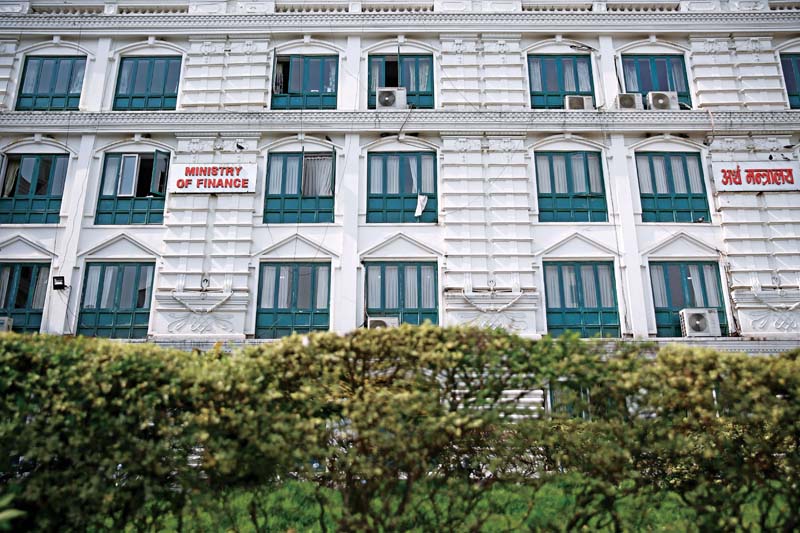‘Resource management in federal system a herculean task for MoF’
Kathmandu, October 30
The country’s recurrent expenditure will increase significantly while setting up the infrastructure for the local bodies and provincial units, which are fundamental for execution of the federal system of the country.
A recent study carried out by the Ministry of Finance (MoF) has shown that Rs 820 billion would be required to develop the physical facilities of the 753 local units and for the adjustment of staffers in the local bodies over the next five years.
Citing the study, Shanta Raj Subedi, the recently retired finance secretary, said that it is a herculean task for the MoF to manage the resources for execution of federal system as the recurrent expenditure of the government will increase alarmingly while developing the infrastructure for the provincial and local level governments and for the salary and allowances of the staffers and local representatives.
“We would need Rs 820 billion for the development of physical facilities just for the local bodies over the next five years, and the liability of the federal government will further increase as it has to transfer grants to provincial governments from next fiscal’s budget,” Subedi said.
Speaking during an interaction programme organised by the Society of Economic Journalists Nepal (SEJON), Subedi said that the current fiscal’s budget has allocated Rs seven billion for the seven provinces to bring them into function after the provincial election. “However, more resources would have to be allocated for the provincial units from next fiscal,” he said, adding, “While the committed liability of the federal government, like expenditure for national security, judicial administration, federal administration, foreign affairs, domestic and foreign debt repayment, pension and gratuities, social security, share and loan investment, among others is around 59 per cent of the budget for ongoing fiscal; it would have to manage resources for the function of the two-tier government — provincial and local, which will be run in full-fledged autonomy.”
Likewise, the federal government would have to share revenue with province and local levels after Natural Resources and Fiscal Commission starts functioning, which will narrow down the fiscal space for federal government to spend in priority development projects. “As the federal government is going to share roughly around Rs 225 billion revenue with the local bodies, the size of the federal budget will be squeezed,” as per Subedi.
He said that the high-ranking officials of the MoF are in hot seat and face challenges to manage resources required in handling the federal system.
Also speaking in the programme, Shankar Prasad Adhikari, finance secretary, admitted that resource management would be challenging in the federal system, but said that it is not impossible. “We are planning to obtain loans from the development partners for the necessary development expenditure.”
He further said that there will be single administration for revenue collection to lower the cost of revenue collection and expand the tax net. “There will be single system for revenue collection, like the local administration will collect the rental tax levied by self and the central government as well and the local administration would submit the central government’s share in rental tax,” he said, “Multiple administrations from the provincial, central and local units might create hassles for the taxpayers, this is why tax will be collected through a single administration and shared among one another.”
He said that the government will increase domestic debt to the optimum level, paying attention not to crowd out private sector’s investment and also take overdraft to the permissible level to execute the federal system.






